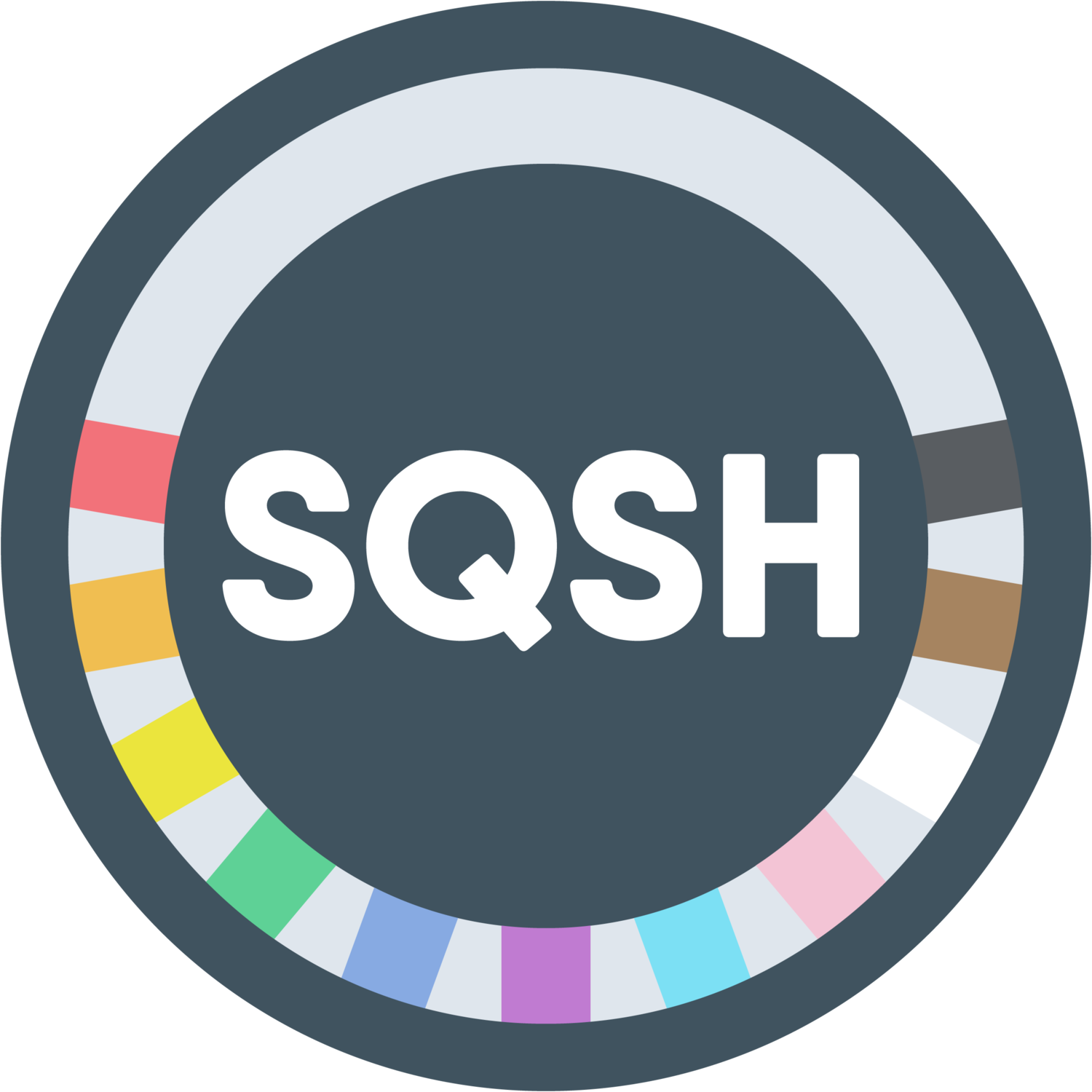
STARLING Healing Justice Collective
Our collective encourages queer St. Louisans to provide first-hand input on the kind of care they want to receive.
Are you a queer-centered therapist or healer who’s interested in joining our collective to build an anti-oppressive mental health system for the St. Louis LGBTQIA+ community? Apply to join our annual Therapist & Healer Cohort; or subscribe to our newsletter to keep in touch!

Project Summary
Starling flocks move in beautiful and captivating ways. Flocks of starlings have a remarkable ability to maintain cohesion as a group in highly uncertain environments. Starlings do this by paying attention to their seven closest neighbors; when uncertainty is present, interacting with seven neighbors optimizes the balance between group cohesiveness and individual effort.
We believe that queer community healing happens in the same way – by building trusting, intimate, and safe relationships with those closest to us, while moving in tandem towards liberation. Our project aims to form a strong foundation for queer St. Louisan healing by fostering connections between peer counselors, community members, mental health professionals, and somatic healers.
We believe that STARLING will strengthen networks of care for the St. Louis LGBTQIA+ community by reducing cost/stigma barriers to therapy; creating safe channels to LGBTQIA-affirming mental healthcare; and strengthening peer referrals to trusted clinicians.
-
In the first year of this project, SQSH provided free training (worth $6,000/year) on LGBTQIA-affirming client care to staff at The SPOT, SLU Family Clinic for Queer & Trans Youth, Behavioral Health Response (BHR), and Crime Victim Center (CVC). In turn, all our partners (except The SPOT) provided free counseling (worth $20,280/year) to SQSH’s Peer Counselors (SPCs).
-
Entering the second year of this project, we believe that:
We need to attend to individuals’ unique needs while healing within community.
We need to expand beyond White, Western modes of healing that center client-provider dynamics, and tap into collectivist, culturally-specific modes of healing.
We need to expand beyond talk-based psychotherapy, and tap into body-based approaches to healing.
We need to take a politicized approach to mental healthcare that acknowledges and combats oppressive systems.
This Spring, we are recruiting 5-7 queer healers to join our collective. Interested in learning more about our first ever queer healer cohort experience? Visit our recruitment page to learn more!

Project Need
Many LGBTQIA+ people face prejudice, harassment, violence, abuse, and family rejection. 1 in 7 LGBT Missourians experience workplace discrimination (Missouri Foundation for Health, 2012), and 61.6% of LGBT St. Louisans have experienced homophobic violence/victimization over their lifetime (Greater St. Louis LGBT Health & Human Services Needs Assessment, 2010). LGBT people are more likely to be targeted for hate crimes than any other minority group in the U.S. (Mykhyalyshyn & Park, 2016). As a result, LGB people face a 1.5x higher risk for depression and anxiety disorders than heterosexual people (King et al., 2008), and 40% of transgender adults have attempted suicide (James et al., 2016).
However, many providers are unequipped to work with queer clients. Many LGBT people report previous negative interactions and avoid discussing sexuality with healthcare providers (Sperber et al., 2005). Nationally, 28% of transgender people experienced verbal harassment in a medical setting; 50% encountered providers who lacked knowledge of their health needs (Grant et al., 2010). Queer-affirming mental health services are especially limited in St. Louis, where most therapists are barely trained in LGBTQIA+ issues. As a result, at least two-thirds of transgender St. Louisans don’t have their mental health needs fully met (Trans Education Service, 2018), with the St. Louis Mental Health Board calling for an expansion of LGBTQ-focused behavioral health services (2018).

Project Purpose
Calling SQSH’s peer-led Helpline is often the first step for many queer St. Louisans who are not ready to access therapy. Many callers share that seeking support from SQSH was their first time ever disclosing traumatic incidents from their past. 70% of all 2019-2020 SQSH calls connected callers to resource referrals; 23% of calls included at least one mental health referral. By providing resource information for callers and peers, SPCs play a crucial connective role in the local continuum of care.
However, studies show that peer counselors need robust professional support throughout their work with peers. SQSH recruits volunteers from a vulnerable population; SPCs often bring their own trauma history or mental health conditions to their roles. SQSH’s 2020 needs assessment found that volunteers experience high levels of burnout. It is crucial for SPCs impacted by vicarious trauma - sustained through their work as helpline operators - to receive ongoing professional support. However, professional therapy costs up to $150/session, posing financial barriers for queer St. Louisans (who are disproportionately under- or uninsured).
This project will connect SPCs with free professional mental healthcare. By implementing LGBTQIA+ cultural competency training for our partners and providing a user-friendly scheduling platform, we will streamline the search for suitable therapists, increasing SPCs’ access to counseling. SPCs play influential roles as community leaders; peers go to them for referrals, both on the SQSH Helpline and in their daily lives. SPCs will gain an understanding of therapy’s benefits, knowledge of local providers, and greater capacity as peer counselors. Equipped with personal experiences with providers, SPCs will become more effective at connecting peers to professional mental healthcare. Access to free therapy will incentivize queer St. Louisans to serve as SPCs, sustaining and diversifying SQSH’s volunteer base. Collaboration between peer-led services and professional clinicians will bolster SQSH’s capacity, allowing us to expand our helpline hours, strengthen referrals to trusted providers, and provide LGBTQIA+ training for more licensed clinicians.
Project Model

Community Engagement
Our project encourages queer St. Louisans to provide first-hand input on the kind of care they want to receive. By encouraging SPCs to submit feedback on our partner organization’s services through feedback surveys and focus groups, we amplify their voices, create queer-centered narratives around mental health resources, and increase the pressure for all local service-providers to be LGBTQIA-competent. Through our community-driven client feedback database, we empower queer St. Louisans to improve fellow community members’ access to identity-affirming resources by sharing anonymously about personal experiences. By connecting queer volunteers with our community partners to directly advocate for their own needs, we encourage local service providers to see the multi-dimensional humanity of their queer clients.

Project Impact
By the end of our first year, we expect:
Our coalition to emerge with a complete dataset of needs assessment and feedback data from at least 22 SPCs (accounting for attrition).
Our coalition members to emerge with a stronger understanding of SPCs’ and LGBTQIA+ St. Louisans mental health needs, with partner organizations’s therapists/counselors reporting higher levels of confidence and fluency in serving queer clients, and SPCs reporting higher levels of quality of care after each round of training.
SPCs to emerge with a stronger connection to the local mental health system, greater ability to provide peer referrals to LGBTQIA-affirming clinicians both on the Helpline and in their daily lives, greater willingness to recommend queer-affirming therapists/counselors (especially those trained in our coalition) to their peers, and greater capacity to continue serving on SQSH’s Peer Support Helpline.
If continued over the next five years, our work will be groundbreaking for three reasons:
We will be creating the first-of-its-kind evidence-based pipeline for queer St. Louisans to submit feedback on and shape the mental health services they receive. For too long, queer St. Louisans have struggled to find local LGBTQIA-competent therapists/counselors in order to feel understood/connected without having to defend their own rights. This program, if sustained, will create queer-centered narratives around mental health and significantly increase the pressure for local providers to be LGBTQIA-competent for the first time.
Our project will be the first-of-its-kind attempt to collect both qualitative and quantitative data on the mental health needs and priorities of queer St. Louisans. LGBTQIA+ populations are underrepresented and undervalued in research. No other organization will assess, prioritize, and advocate for our own community’s needs with the level of passion and urgency that we will. This project, if sustained, will break new ground in providing a much-needed evidence-based picture of the local queer population’s mental health needs.
We will be offering the first-of-its-kind community-driven training that draws from both community members’ lived experiences and mental health providers’ professional expertise. This project, if sustained, will represent a powerful opportunity for queer St. Louisans to work hand in hand with mental health professionals to create a world where our community has access to both professional and peer-based LGBTQIA-affirming mental health supports.

